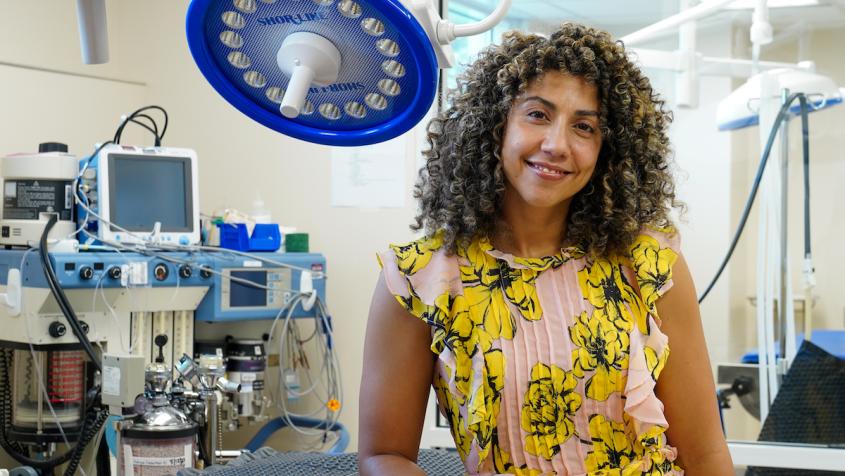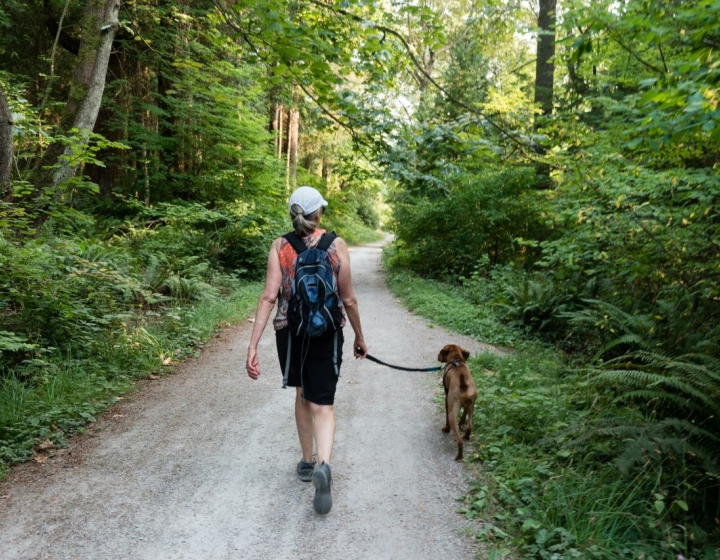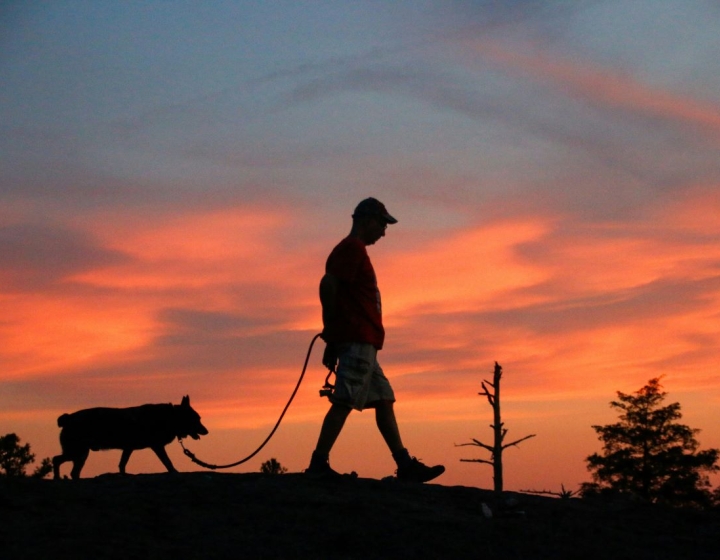New faculty profile: Dr. Michelle Moyal
The Cornell University College of Veterinary Medicine has recently welcomed many new faculty members to our academic departments, each one bringing a unique set of skills and experience that enriches our college every day. In this Q&A series, you'll get to know their interests, expertise and more.
Michelle Moyal, D.V.M. '07, assistant clinical professor in primary care surgery
Q: What has been your academic/career path leading up to Cornell?
A: I attended the College of Veterinary Medicine for my veterinary education, graduating in 2007. I went on to complete an internship in emergency medicine and surgery. I was an ER doctor teaching interns for another six years, until I transitioned into primary care practice (aka general practice). I returned as faculty in March of 2020 to teach primary care surgery to fourth-year veterinary students. Due to the pandemic, students were not in clinics when I started, so I worked at the Cornell University Hospital for Animals as an emergency clinician. This is exactly what great veterinarians do every day — they are flexible in their practice, to help address the growing needs of the surrounding community.
Q: What drew you to Cornell Vet?
A: I loved my Cornell experience in veterinary school and when I discovered how much I loved teaching, it was always my dream to come back. Cornell definitely provides an intense academic experience. But when I was a student, I was still able to develop relationships with peers and professors that I value to this day. I had an opportunity to return as the practitioner in residence in 2013 and that experience just reaffirmed my long-term goal to make it back to Ithaca one day. I’m so proud to be a Cornell graduate and now I help the next generation of Cornell veterinarians prepare to join our ranks. Definitely a dream come true!
Q: What is your area of expertise?
A: Small animal primary care practice — the veterinarian whom most people see once or twice a year. This incorporates a lot! We see the global perspective of our patients — devising medical treatment plans for some with a multitude of comorbidities (overlapping illnesses). General practitioner is the epitome of a jack-of-all-trades in the medical field. I have worked for years to broaden my knowledge: Emergency medicine, surgical skills, nutrition management and even small animal rehabilitation training!
Q: What drew you into this area? Any specific experiences, mentors, influences that helped guide you?
A: Dr. William Hornbuckle and Dr. Jay Harvey. When I was a student, Dr. Hornbuckle led the community practice service and Dr. Harvey taught surgery. I hope that students will remember techniques that I’ve taught them the same way I remember the skills I learned from Drs. Hornbuckle and Harvey. They both trusted me enough as a student to let me actually practice medicine (obviously with their supervision). They always appeared so confident and made decisions so effortlessly, and after years in practice I realize how much practice and skill that takes.
Q: What past professional work are you most proud of and why?
A: Two things come to mind. First, in my own practice, I’m proud that I’ve been able to keep learning new skills. I love continuing education and love learning new procedures. Second, I’m proud of helping others discover veterinary medicine, especially other first-generation American students. Before joining the faculty at Cornell, I was able to participate in several panel discussions on behalf of Cornell talking about the profession and sharing my experiences. Those were truly rewarding moments in my career.
Q: What about your work are you most excited for/proud of and why?
A: I want to give students in my rotation a true sense of autonomy in their practice of medicine. Each student has the opportunity to be the lead doctor on a surgical case and manage every aspect of patient care for the duration of the rotation. Students have said it’s very exciting but can also be very nerve-wracking because many haven’t had this type of experience yet. I take so much pride in watching young clinicians experience new skills. I focus on encouraging students to practice as many hands-on skills as possible over the two weeks I spend with them, for example: AFAST scans, different phlebotomy techniques, OTIC exams.
Q: What impacts or applications do you hope to see with your work?
A: I want my students to walk away with a better understanding of full spectrum of care. The ability to offer a wide range of treatment options coupled with an understanding of the owner’s goals and resources for pet care is a skill you have to develop. By exploring a full spectrum of care options with an owner, we create a higher likelihood that a pet will receive at least some treatment leading to improved animal welfare.
Q: What’s something most people don’t know about you?
A: I have been a big sister with Big Brothers, Big Sisters of America since 2015. I highly encourage people to join this fantastic program — there are children who could greatly benefit from a mentor. I also played roller derby with San Diego Derby United, where I’m more likely to be known as Dr. Turmoyal!
Q: What’s the best part of being a clinician?
A: There is no greater success than helping a patient live a better, more comfortable life. Something as small as helping to resolve a chronic ear infection can feel like such a win. I also hope to impact students and help them change the lives of the animals they treat and clients they educate.
Q: What’s the most challenging part?
A: There is absolutely a plague of burnout in the profession. That is definitely a challenging part of this career. Regardless of what type of veterinary medicine you practice, there is typically debt upon graduation, long work hours, high stress levels — all of these things impact our ability to be great clinicians. I talk about this with students each week and ask them to reflect out loud about how their week went. The goal is to start the conversation now about all aspects of the job, good and bad, so they know more of what to expect going into practice and can more easily talk about and manage their experiences.
Q: What are the benefits of working at CVM? At Cornell?
A: I work with a team that constantly makes me better. A better clinician, a better teacher. Collaboration among services not only makes our care better, it makes US better.






